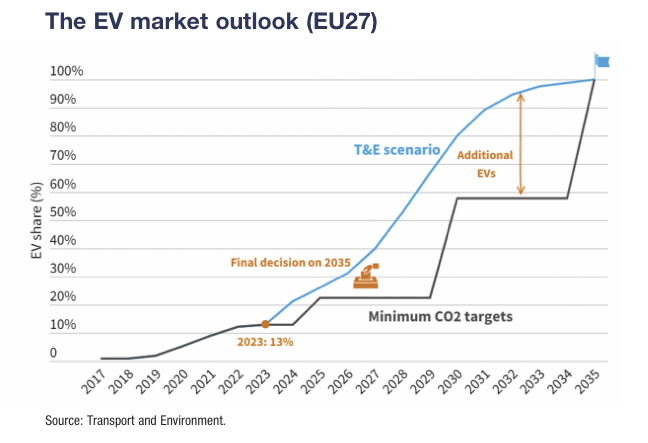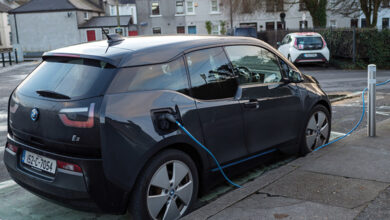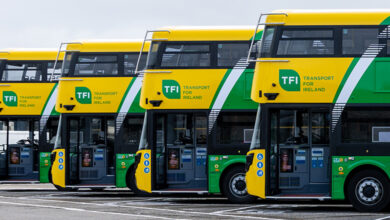Explaining the EV slowdown in the EU

Lucien Mattieu, Cars Director, Transport and Environment, Brussels, talks about the slowdown in the adoption of electric vehicles (EVs) currently taking place throughout the EU.
Although, in 2023, electric vehicles (EVs) accounted for 18.6 per cent of overall car sales in Ireland – a statistic which makes Ireland stronger in this area than all other countries in western Europe and the Nordic states with the exception of Belgium – there has been a slowdown in purchases throughout the EU following an initial sales boom.
Following the approval of the European Green Deal in 2020, sales of EVs spiked. Road transport accounts for a majority of EU emissions within the transport sector, and industry has been encouraged to adapt to long-term net zero obligations, with grants being offered to many EU citizens to encourage them to buy EVs.
However, the acceleration of this growth has slowed. This, according to Mattieu, is down to a number of factors, among which he describes as “inadequate” emissions reduction targets for 2029.
He explains: “Industry was sprung into action as there were new targets in 2020/2021. That is why there was an initial increase in EV sales. Unfortunately, the emissions reductions targets to 2029 are not very stringent, which means that interim emissions reductions targets can be met with just 22 per cent electric car sales.”
In the long term, EU car sales must be at least 60 per cent electric from 2030, with a 2035 target of ensuring that all car sales are electric vehicles.
In the two years where there is available data, Mattieu states that there has been a “sudden drop in the sale of small electric car models”. He rationalises: “In the last couple of years, car manufacturers have been prioritising the sales of larger car models such as SUVs which is being driven by a desire to make more profits.”
Affordability
Referring to a survey of European car drivers carried out by Transport and Environment, Mattieu claims that if a smaller, affordable electric car was available on the market, this could significantly increase demand for electric cars from the current figure of 25 per cent of EU citizens interested in EVs to 35 per cent.
“We must reflect on what we consider affordable, because the average consumer in the EU does not have the ability to buy an electric vehicle, which costs minimum €25,000. People have this aspiration, so it is important to ensure that the EV market meets demand with production levels in the right volumes.”
Increasing the affordability of electric vehicles is an approach being taken by the Government of France. Mattieu explains: “What the French Government is doing, in a nutshell, is providing low income households with the opportunity to have an electric car for €100 per month. The [French] Government is essentially introducing a state-backed sponsorship scheme with subsidies that are targeted and ensuring that the people who have the lowest income have the ability and affordability to access these cars.”
Conclusion
Looking at the transport sector more broadly, Mattieu reflects that the overall objective of the transport sector throughout the EU is to ensure that all member states are able to meet net zero obligations.
He states that electric vehicles are “part of the solution”, but also outlines that other measures which decrease the volume of vehicles on the road is another branch of this wider strategy.
He states that while there is an EV slowdown, that the French Government provides the finest example of “perseverance” with the decarbonisation of transport.
With the French Government introducing both EV grants which make the vehicles affordable for lower-income French citizens, as well as a trebling parking fees which aims to disincentivise wider vehicle use in the French capital, Paris, he is optimistic that the road to net zero in the transport sector is “going in the right direction”.
“We know that a lot of cities are looking very closely at what Paris is doing and could aim to replicate it, so it sends an important signal. We need this kind of wide policy toolbox to ensure that every transition in the EU is affordable and environmentally responsible,” he concludes.






